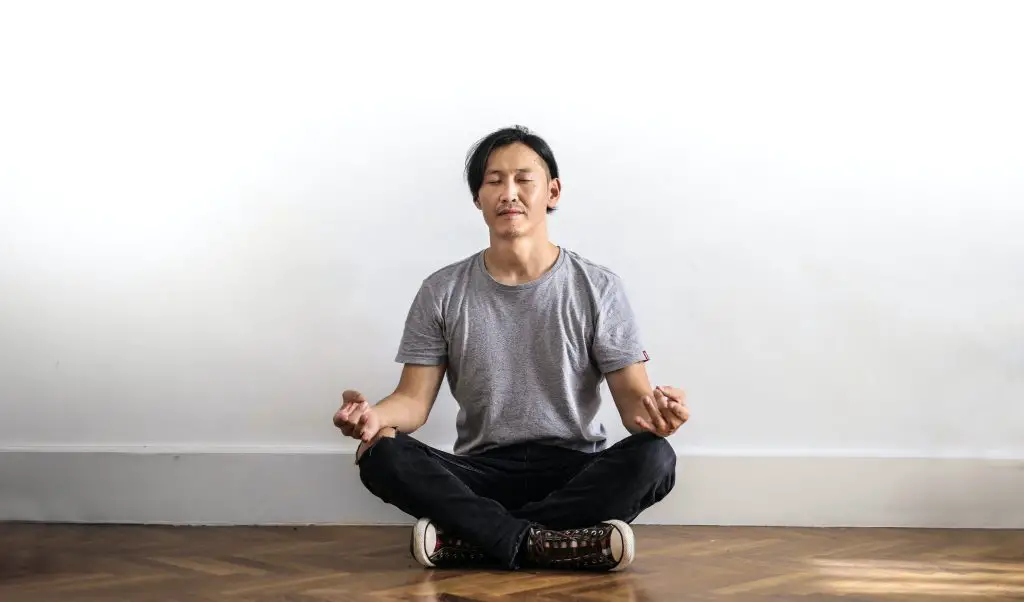In the world of meditation, you may have come across the terms Zen meditation and mindfulness. While both practices focus on cultivating awareness, there are key distinctions between the two. Understanding the differences between Zazen vs mindfulness can help you choose the method that best suits your needs and preferences.
Zen meditation, also known as Zazen, is rooted in Buddhism, with the goal of achieving a state of pure awareness and enlightenment. It involves fostering a general awareness, rather than focusing on a specific object like mindfulness practices often do. In contrast, mindfulness is a secular practice that promotes being fully present in the moment and accepting it without judgment.
Given these distinctions, you might ask yourself which practice is best for your personal journey. Exploring both Zen meditation and mindfulness can provide valuable insights and unique benefits to your daily life. Whichever path you choose, remember that consistency and open-mindedness are essential to truly experience the transformative power of meditation.
Zazen vs Mindfulness: Definitions and Origins
In this section, you’ll learn about the definitions and origins of Zazen and mindfulness. This understanding will help you differentiate between the two practices and make informed choices about which practice might suit your needs better.
What Is Zazen?

Zazen, often called Zen meditation, is a meditation technique rooted in Buddhist psychology, particularly associated with Japanese Zen Buddhism. The primary goal of Zazen is to regulate attention and cultivate awareness through the practice of “thinking about not thinking.”.
Originating from Buddhism, Zazen is deeply connected to philosophical and religious notions, with its ultimate goal being to achieve a state of pure awareness and enlightenment.
What Is Mindfulness?

Mindfulness is a secular awareness practice that originated from Buddhist meditation but has evolved beyond its religious roots. It focuses on cultivating awareness of your thoughts, feelings, bodily sensations, and the surrounding environment.
The modern mindfulness movement emphasizes techniques for reducing stress, improving mental well-being, and enhancing emotional regulation. Mindfulness can be practiced by anyone, regardless of religious or philosophical beliefs, making it more accessible to a broader audience.
Similarities and Differences
Philosophies and Techniques
Both Zen meditation, also known as Zazen, and mindfulness emphasize cultivating your awareness. However, Zen meditation has its roots in Buddhism, whereas the modern mindfulness movement is secular. In Zazen, you often focus on your breath or body-mind framework while maintaining a specific posture. In mindfulness, you train your awareness on your breath, body sensations, thoughts or feelings without judgment.
Objectives and Benefits
The goal of Zen meditation is to achieve a state of pure awareness and enlightenment. Mindfulness, on the other hand, aims to improve your mental well-being, help manage stress, and develop a non-judgmental and compassionate attitude.
Some of the benefits of both practices include:
- Increased focus and concentration
- Better stress management
- Improved emotional regulation
- Enhanced mental and physical well-being
However, Zen meditation may delve deeper into spiritual development and self-realization due to its roots in Buddhism.
Practical Applications
Zazen in Everyday Life

Zazen meditation, a form of Zen practice, can be easily integrated into your daily life. One key aspect of Zazen is its focus on maintaining a proper posture, which helps in experiencing the interconnectedness between body and mind. By practicing Zazen, you can naturally develop a greater sense of balance and awareness throughout your day.
During Zazen, you might use a technique called Koan meditation, in which you contemplate a question or phrase and observe the thoughts and feelings that arise as a result. This practice can help you cultivate curiosity and introspection.
Mindfulness in Everyday Life

Incorporating mindfulness into your daily routines can lead to numerous benefits. As MindfulnessBox.com explains, mindfulness has been shown to improve focus and concentration, reduce stress and anxiety, enhance creativity, and improve sleep quality, to name a few. You can practice mindfulness in everyday activities, such as eating, walking, or even washing dishes.
One effective mindfulness technique is the body scan, where you mentally move through each part of your body, noticing sensations, tension, or relaxation. This practice helps you develop greater awareness and connection with your body, which can lead to a more balanced and grounded presence in your daily life.
To further integrate mindfulness into your routines, try setting reminders on your phone or computer to pause for a few moments throughout the day, checking in with your breath and body sensations. This simple practice can help you refocus, restore balance, and make the most of your day.
Choosing the Right Practice
Individual Preferences and Goals
When it comes to choosing a meditation practice, the key is to find the one that aligns with your personal preferences and goals. Zazen is a meditation practice rooted in Buddhist tradition, performed seated or as a walking meditation, and often practiced in temples, monasteries, and meditation halls. On the other hand, mindfulness focuses on cultivating present-moment awareness in daily life.
If you are looking for a structured approach and are comfortable with sitting in one position for an extended period, Zazen might be the right choice for you. Mindfulness, however, is more suitable for those who want to integrate meditation into their daily activities and develop a more open and non-judgmental awareness of thoughts, feelings, and experiences.
Combining Zazen and Mindfulness
Combining Zazen and mindfulness can be advantageous and may help deepen your practice. Practicing Zazen helps you develop a strong foundation in concentration and stillness, which can be beneficial when practicing mindfulness. Using the skills developed in Zazen, you can learn to focus on the present moment more effectively and cultivate a greater sense of awareness.
Incorporating both Zazen and mindfulness into your meditation routine can help create balance and provide a well-rounded approach. For example, you can practice Zazen in the morning to develop concentration, and spend time throughout the day engaged in mindfulness exercises to maintain present-moment awareness.
Ultimately, the choice between Zazen and mindfulness or combining the two practices depends on your preferences, goals, and commitment to meditation. Experiment with both methods and determine which one or a combination of the two resonates best with you, and adapt your practice accordingly.
Conclusion
In comparing Zazen and mindfulness meditation, it’s essential to understand the unique aspects and goals of each practice. Both methods share the common goal of cultivating a clear and focused mind, but they differ in their approaches and philosophies.
Zazen, a form of Buddhist meditation, centers around the holistic body-mind framework with less emphasis on the head, allowing for a more balanced and undivided experience. This practice focuses on letting go of thoughts as they arise, which can be challenging for beginners. In contrast, mindfulness meditation is more secular and may seem less daunting for newcomers as it doesn’t require detaching from thoughts but rather observing them without judgment.
As you explore the practice of meditation, consider your personal goals and preferences. If you’re seeking a spiritual practice rooted in Buddhist tradition, you may find Zazen more fitting. However, if you prefer a more secular, down-to-earth approach, mindfulness may be a better choice. Regardless of the path you choose, both Zazen and mindfulness offer powerful tools for developing mental clarity, focus, and inner peace.
